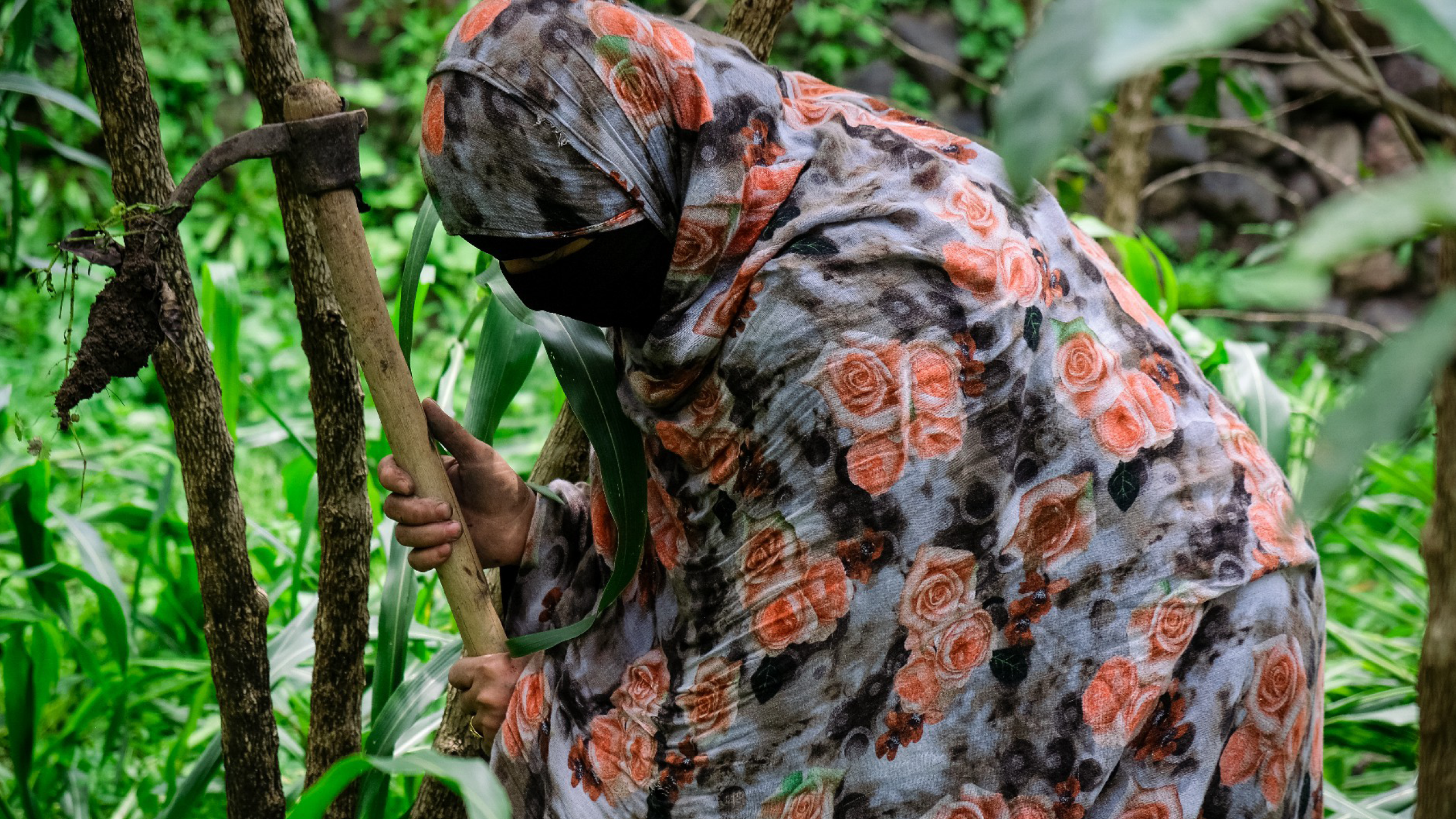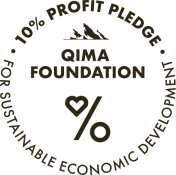
.png)
.png)

.png)
.png)
Jury code : 5415

jury score :
Genetics :
Process :
lot size :
VILLAGE :Hejrat Al Ain
REGION : Hayma Dakhiliya
GOVERNORATE : Sanaa
ALTITUDE :2000-2300masl
.png)
FLAVOUR PROFILE
.png)


Yemenia is a new mother population within the species of Coffea arabica that is found exclusively in Yemen, and represents an ocean of unexplored genetics and future varieties that have the potential to reshape the world of arabica for centuries to come.
Read the Scientific paper here.
The discovery of Yemenia was part of Qima Coffee’s R&D programme with Dr Christophe Montagnon, the aim of which was to map out Yemen's coffee genetic landscape. Qima conducted the largest genetic survey in Yemen's history, covering an area of over 25,000 sq km.
Through rigorous research in coffee genetics, we discovered that there exists a mother population of Coffea arabica that never left Yemen, and remains native to the land till date: Yemenia – meaning Yemeni mother in Arabic.
Yemen’s coffee land has a rough climate, displaying both high and low temperatures in the extreme range of coffee growing areas worldwide, together with one of the lowest global rainfall levels. There is no doubt that this environment has favoured resilient landraces, not only between the 1400s (coffee first introduced to Yemen) and 1700s (when today’s main worldwide coffee varieties were taken out of Yemen), but also during the last 300 years of coffee cultivation and propagation. The unveiling of Yemenia, which has not been observed anywhere else in the world so far, opens the gate to previously uncharted genetic diversity within C. arabica in general, and Yemeni coffee in particular. Further research is ongoing to determine and identify potential varieties within Yemenia group.
Natural process is a time-honored coffee processing method that results in extraordinary depth and complexity of flavour. The process requires meticulous management throughout to result in flavour clarity.
After selective harvesting, Qima's on-ground team promptly collects the cherries at the farm gate and transports them to our in-house drying facilities. The cherries are then placed on raised parabolic drying beds, where they are left to dry until the insides have reached the optimal moisture level. This can take between 15 to 25 days. The cherries are turned periodically during drying to avoid over fermentation. Moisture, density and BRIX levels are closely monitored to ensure uniformity and quality.
Hayma Dakhiliya is a coffee growing region located in the west of the Sana’a governorate, it is one of the governorate’s most well-known regions. The region has 11 mountainous villages located 50km west of the capital city of Sana’a. Some of the villages in Hayma Dakhiliya include Al Yaer, Bait Yaseen, Al Mezab and Bait Al Kabsh. However, due to the rough terrain and rugged roads, the villages are hard to reach and remain isolated from the city. Due to the location of the villages in this region, access to education and healthcare is limited.
However, coffee trees have been struggling with diseases impacting the region’s outturn of coffee cherries and overall yield. Low yield is a problem affecting the Yemeni coffee industry; however, Hayma Dakhiliya is particularly struggling with this issue and as result, the region has the lowest yield in Yemen.
10:00AM BST LONDON, UNITED KINGDOM
2:00AM PDT LA, USA
5:00AM EDT NY, USA
11:00AM CEST AMSTERDAM, NETHERLANDS
12:00PM AST RIYADH, SAUDI ARABIA
1:00PM GST DUBAI, UAE
5:00PM CST BEIJING, CHINA
5:00PM HKT HONG KONG, HONG KONG
6:00PM JST TOKYO, JAPAN
6:00PM KST SEOUL, SOUTH KOREA
7:00PM AEST SYDNEY, AUSTRALIA